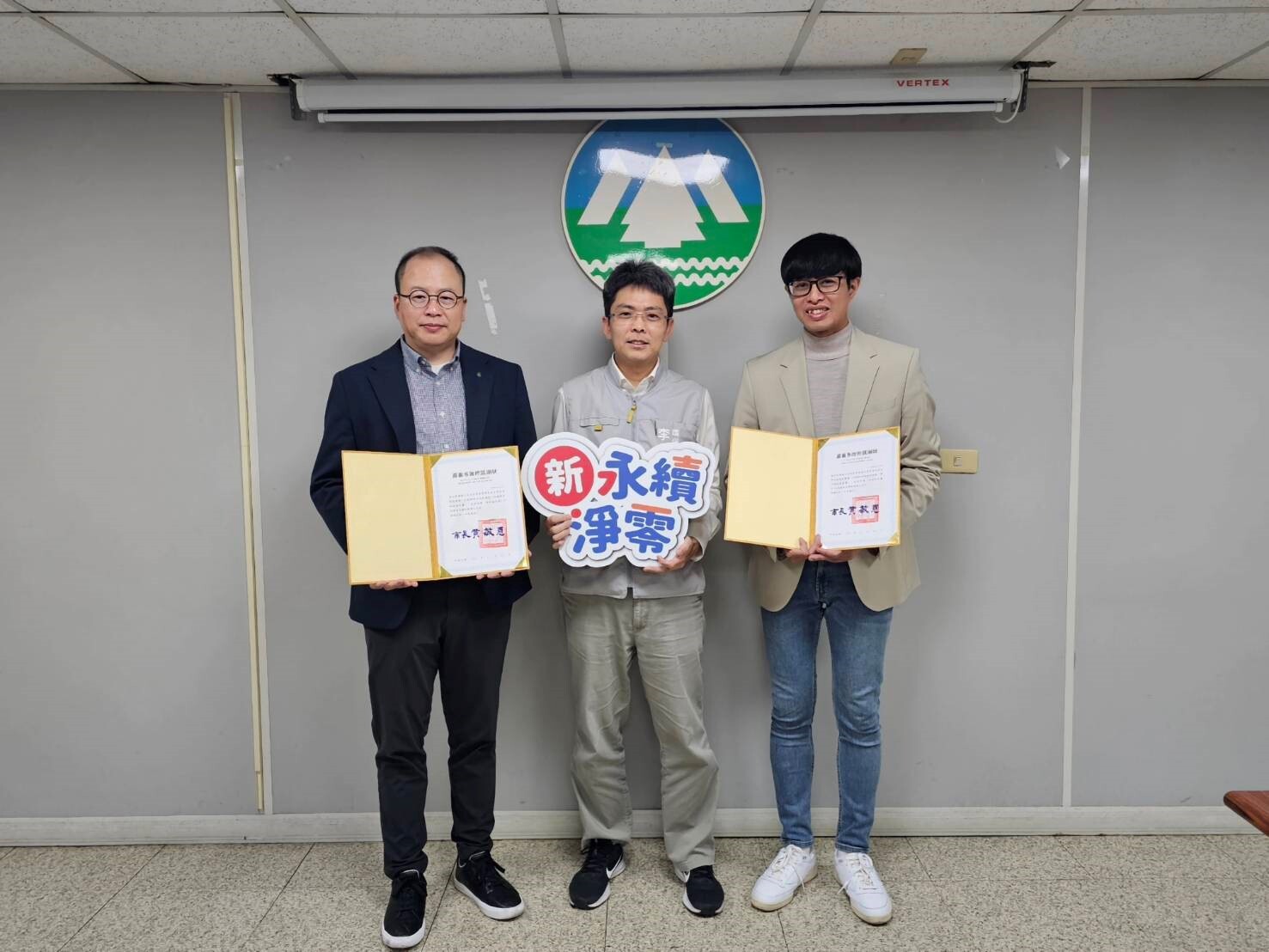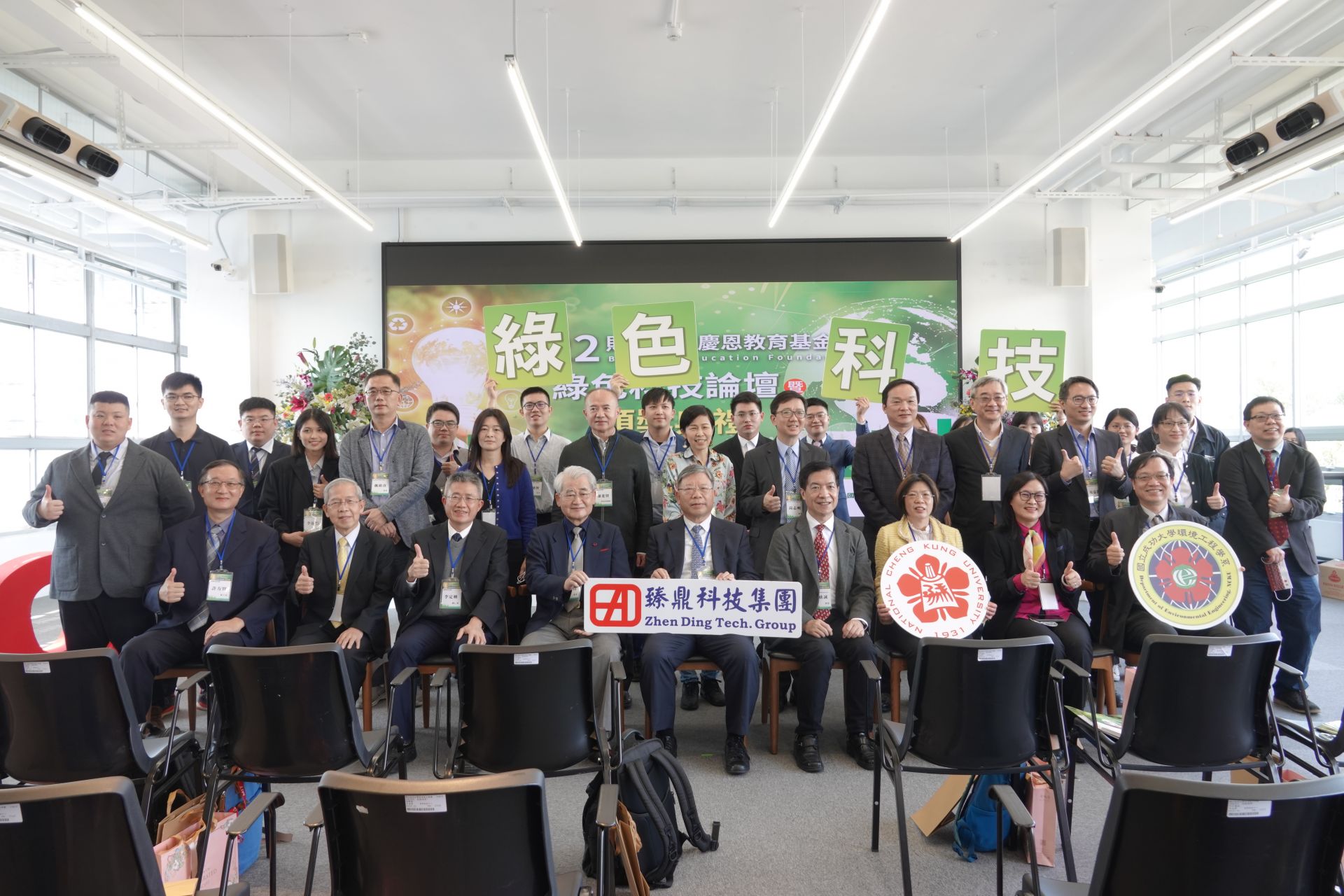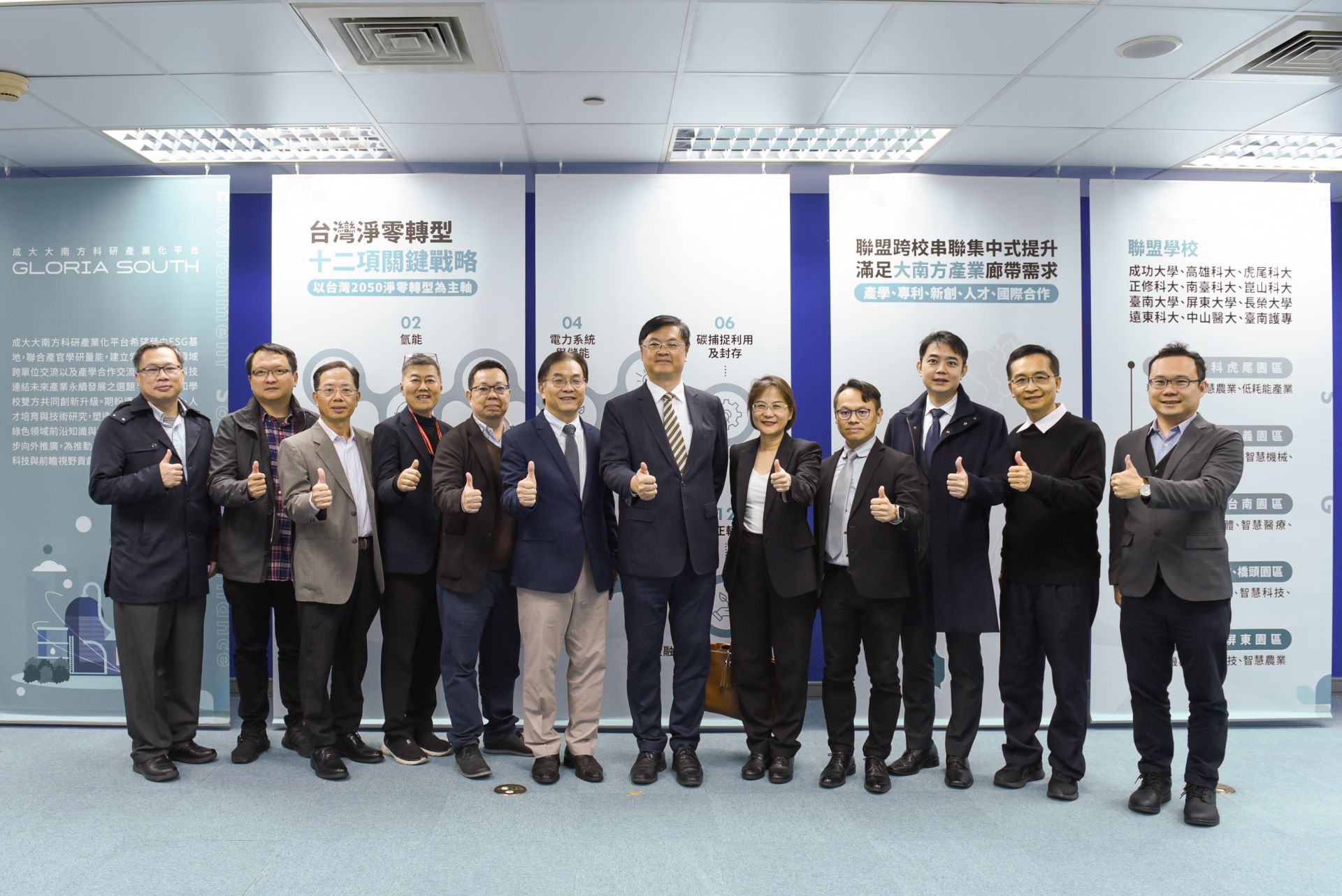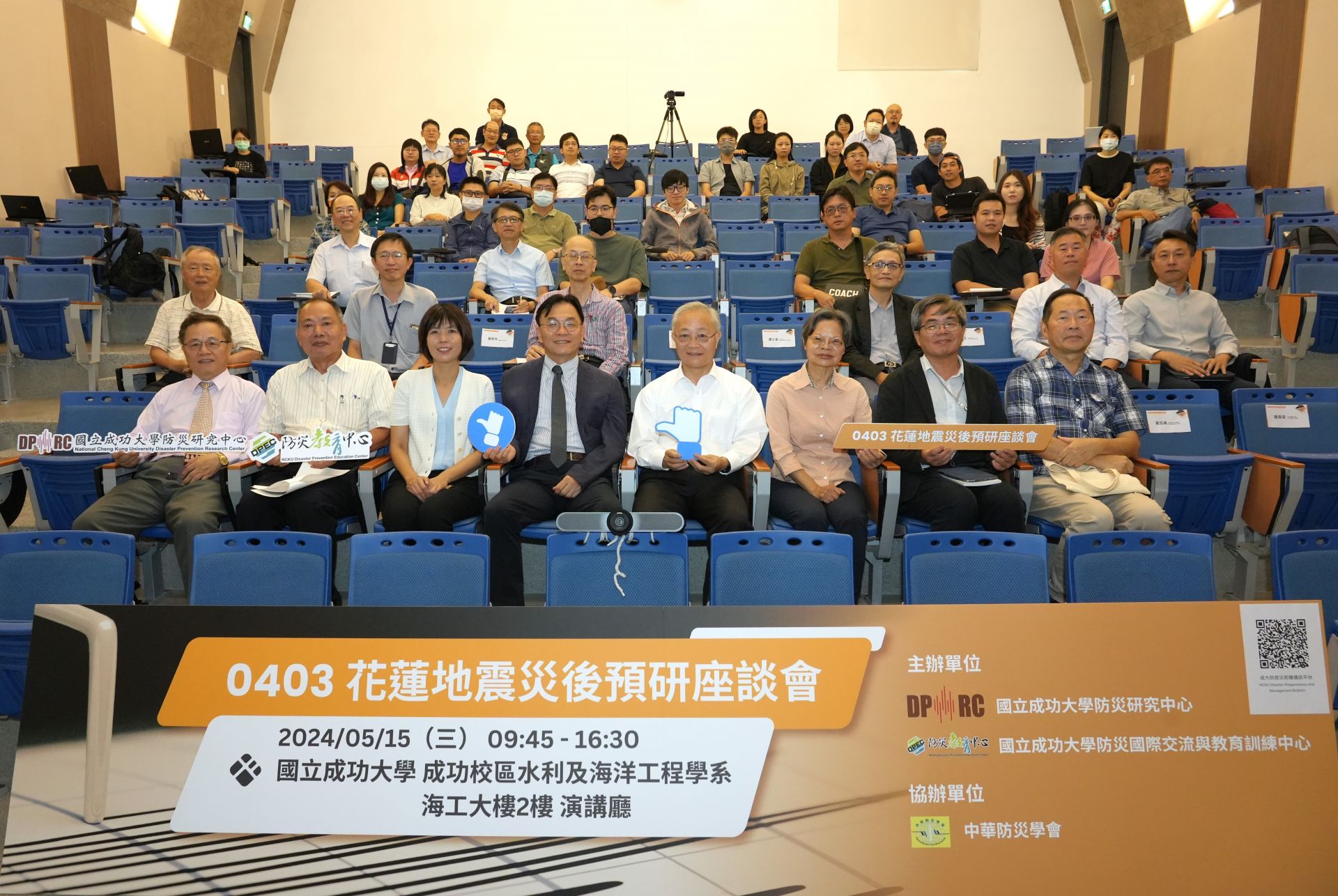SDG13
NCKU Professor Wu and Hsu received recognition with the 2024 National Sustainable Development Award
Professor Chih-Da Wu and Assistant Professor Yu-Liang Hsu of National Cheng Kung University (NCKU), in collaboration with the Chiayi City Government, have been recognized with the 1st Space Information Sustainability Application Award (Excellence Award) from The Chinese GeoInformatics Society, the 2024 TSAA Taiwan Sustainability Action Award for SDG13 – Climate Action (Gold Award), and the National Sustainable Development Award – Government Agencies Category.
With global warming becoming increasingly severe, achieving net-zero carbon emissions by 2050 has become a shared goal worldwide. Carbon emissions not only influence global climates but also have profound impacts on ecosystems and public health. Effective carbon reduction and enhancing urban carbon sequestration capacity are critical to cities’ sustainable development. Chiayi City, endowed with abundant green resources and wooden heritage, possesses high potential for carbon sequestration. This year, the Chiayi City Government collaborated closely with NCKU, utilizing Geo-AI (Geographic Artificial Intelligence), paired with unmanned aerial vehicles, multispectral sensors, and the CASA model, to investigate carbon storage in urban green spaces and wooden architecture.
The project, led by Professor Chih-Da Wu from NCKU’s Department of Geomatics, involved collaboration with Distinguished Professor Wan-Yu Liu of National Chung Hsing University, Assistant Professor Yu-Liang Hsu of NCKU’s Department of Architecture, and Associate Researcher Juo-Pin Hung of the Agricultural Engineering Research Center. The research aimed to explore the carbon sequestration potential of Chiayi City’s urban green spaces and wooden architecture. The study focused on three main categories of urban green spaces: city parks, street trees, and school green areas. For wooden architecture, the selected research sites included the Southern and Northern Experimental Timber Sites, formerly old prison dormitories, and the Correctional Training Institute 1921, a historic wooden building.
The findings reveal that these urban green spaces can store approximately 39.7 metric tons of carbon per month, with Chiayi Park alone contributing 24 metric tons monthly. Additionally, the two experimental wooden structures collectively sequester 31.3 metric tons of carbon annually. Future research will aim to expand the scope of analysis while balancing cultural preservation and sustainable development to help Chiayi City achieve its net-zero carbon goals.
The Environmental Protection Bureau of Chiayi City, in partnership with NCKU, applied cutting-edge Geo-AI technology to enhance the efficiency of urban carbon sequestration estimation and accelerate carbon auditing processes. This groundbreaking research has received several prestigious accolades:
- The 1st Space Information Sustainability Application Award (Excellence Award) for the project“Geo-AI Applications in Net-Zero Sustainability in Chiayi City: Urban Carbon Sequestration and Air Pollution Control.”
- The 2024 TSAA Taiwan Sustainability Action Award for SDG13 – Climate Action (Gold Award)** for the program“SDG13: Chiayi Net-Zero AI Remote Sensing for Carbon Control.”
Based on these interdisciplinary research achievements, the“Chiayi, the City of Wood: Sustainability +1”project by the Chiayi City Government was honored with the 2024 National Sustainable Development Award – Government Agencies Category. The award ceremony was held by the Executive Yuan’s National Council for Sustainable Development on December 19.
With global warming becoming increasingly severe, achieving net-zero carbon emissions by 2050 has become a shared goal worldwide. Carbon emissions not only influence global climates but also have profound impacts on ecosystems and public health. Effective carbon reduction and enhancing urban carbon sequestration capacity are critical to cities’ sustainable development. Chiayi City, endowed with abundant green resources and wooden heritage, possesses high potential for carbon sequestration. This year, the Chiayi City Government collaborated closely with NCKU, utilizing Geo-AI (Geographic Artificial Intelligence), paired with unmanned aerial vehicles, multispectral sensors, and the CASA model, to investigate carbon storage in urban green spaces and wooden architecture.
The project, led by Professor Chih-Da Wu from NCKU’s Department of Geomatics, involved collaboration with Distinguished Professor Wan-Yu Liu of National Chung Hsing University, Assistant Professor Yu-Liang Hsu of NCKU’s Department of Architecture, and Associate Researcher Juo-Pin Hung of the Agricultural Engineering Research Center. The research aimed to explore the carbon sequestration potential of Chiayi City’s urban green spaces and wooden architecture. The study focused on three main categories of urban green spaces: city parks, street trees, and school green areas. For wooden architecture, the selected research sites included the Southern and Northern Experimental Timber Sites, formerly old prison dormitories, and the Correctional Training Institute 1921, a historic wooden building.
The findings reveal that these urban green spaces can store approximately 39.7 metric tons of carbon per month, with Chiayi Park alone contributing 24 metric tons monthly. Additionally, the two experimental wooden structures collectively sequester 31.3 metric tons of carbon annually. Future research will aim to expand the scope of analysis while balancing cultural preservation and sustainable development to help Chiayi City achieve its net-zero carbon goals.
The Environmental Protection Bureau of Chiayi City, in partnership with NCKU, applied cutting-edge Geo-AI technology to enhance the efficiency of urban carbon sequestration estimation and accelerate carbon auditing processes. This groundbreaking research has received several prestigious accolades:
- The 1st Space Information Sustainability Application Award (Excellence Award) for the project“Geo-AI Applications in Net-Zero Sustainability in Chiayi City: Urban Carbon Sequestration and Air Pollution Control.”
- The 2024 TSAA Taiwan Sustainability Action Award for SDG13 – Climate Action (Gold Award)** for the program“SDG13: Chiayi Net-Zero AI Remote Sensing for Carbon Control.”
Based on these interdisciplinary research achievements, the“Chiayi, the City of Wood: Sustainability +1”project by the Chiayi City Government was honored with the 2024 National Sustainable Development Award – Government Agencies Category. The award ceremony was held by the Executive Yuan’s National Council for Sustainable Development on December 19.

Professor Chih-Da Wu(right) and Assistant Professor Yu-Liang Hsu (left) assisted the Chiayi City Government in earning recognition with the 2024 National Sustainable Development Award.






















